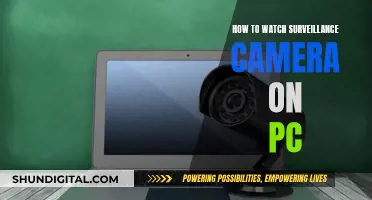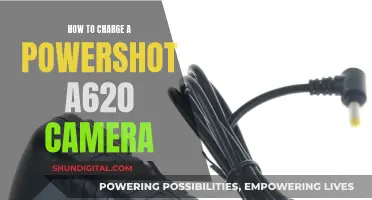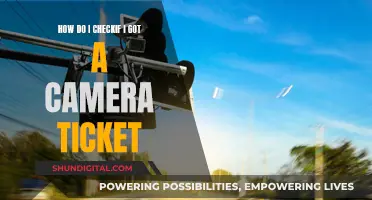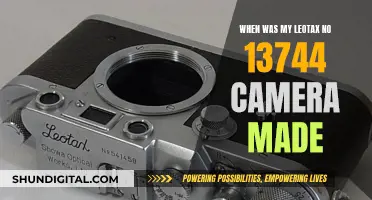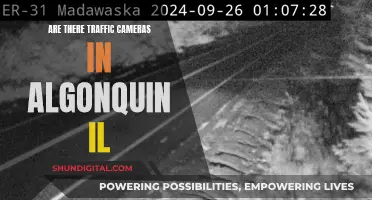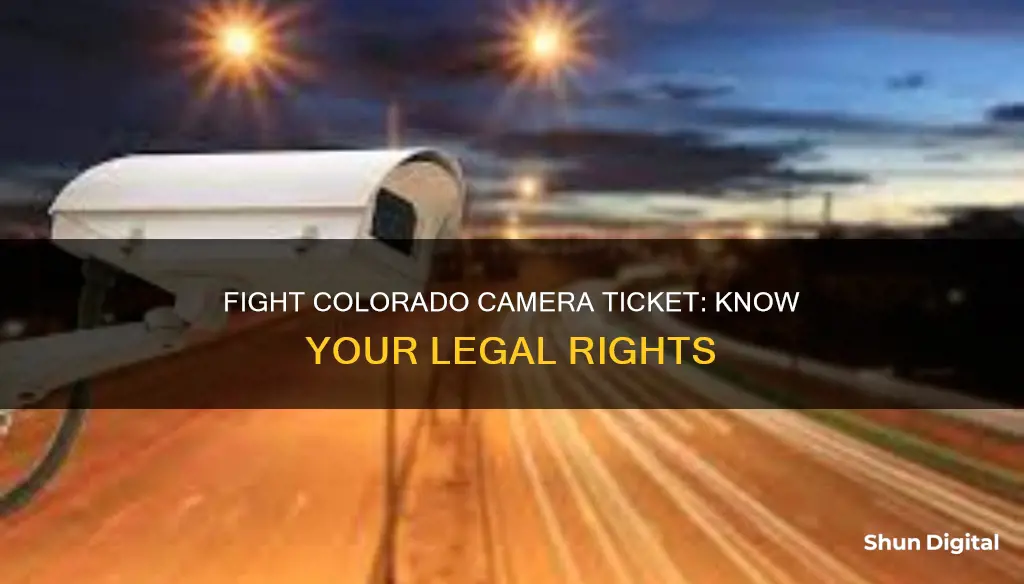
If you've received a camera ticket in Colorado, you may be wondering what to do next. While it can be frustrating to receive a citation, there are a few important things to keep in mind. First, review the citation carefully and look for information on how to dispute the violation. You may be able to provide evidence that you were not the person driving the car when the violation occurred. It's also a good idea to familiarize yourself with the laws and regulations regarding camera tickets in Colorado, as there have been recent changes that may impact your case. For example, the state now has a shorter time frame to issue tickets, and there are specific requirements for signage warning drivers of speed cameras. Remember, you have the right to fight the ticket and present your case. Consider seeking legal advice or representation if you need further assistance.
What You'll Learn
- Know the penalties: fines for red-light violations are $75, while photo speed van fines are $40, doubling in school zones
- Signs must be posted: municipalities must post signs warning of speed cameras and announce new systems 30 days before
- Presumption of guilt: the registered owner is presumed to be driving, but this can be rebutted with evidence
- Time to respond: Colorado residents have 30 days to respond to a ticket; out-of-state residents have 60 days
- No points on license: while fines are mandatory, no points are added to your license for violations

Know the penalties: fines for red-light violations are $75, while photo speed van fines are $40, doubling in school zones
In Colorado, fines for red-light violations captured by Automated Vehicle Identification Systems (AVIS) are set at a maximum of $75. If you receive a citation for a red-light violation, you will have the opportunity to review the photo and video evidence online to confirm the violation. The citation will be mailed to the address your vehicle is registered under, and will include information on how to view the evidence and dispute the violation if necessary.
For photo speed van fines, the maximum penalty is $40. However, this amount doubles to $80 if the violation occurs in a school zone. It's important to note that photo speed vans are only permitted to be used in certain areas, including school zones, residential neighbourhoods, and along streets bordering municipal parks. If it is an individual's first offense and they are driving less than 10 miles per hour over the speed limit, a warning will be issued instead of a fine.
Like red-light violation citations, photo speed van citations will be mailed to the registered address of the vehicle and will include information on the violation, the fine amount, and how to pay or dispute the fine. If you do not pay the fine within the specified time, you may be served with a copy of the citation and a court date. At this point, additional fees will apply, and failure to respond can result in the case being sent to a collection agency.
It's worth noting that no points will be assessed against your driver's license for violations detected through AVIS. The only consequence is the payment of a fine. Additionally, if you were not the person driving your vehicle at the time of the violation, you can inform the issuing municipality and provide evidence that you were not the driver. While you may be asked to provide the identity of the driver, you are not required to do so.
Motorola Focus 66: How Long Does the Charge Last?
You may want to see also

Signs must be posted: municipalities must post signs warning of speed cameras and announce new systems 30 days before
In Colorado, municipalities must clearly post signs warning of speed cameras and also announce the implementation of new systems 30 days before they go into effect. After a system is installed, it can only issue warnings for 30 days.
For photo speed vans, the sign must be posted 300 feet before the area in which the van is detecting speeds. For red light cameras, the sign must be posted between 200 and 500 feet before the intersection in which the red-light camera is being used.
Automated Vehicle Identification Systems (AVIS) include red light cameras and photo speed vans. These systems are entirely legal in Colorado, pursuant to C.R.S. 42-4-110.5. However, the State of Colorado and the majority of municipalities in Colorado do not use them. In 2019, only nine municipalities in Colorado were utilizing this form of traffic control: Boulder, Colorado Springs, Commerce City, Denver, Fort Collins, Greenwood Village, Lone Tree, Pueblo, and Sheridan.
AVIS cannot be used to detect a violation unless a sign is posted to notify the public that such a system is in use. A penalty assessment notice or summons must be delivered within 90 days of the alleged violation.
Autofocus 660 Camera: Where Was It Manufactured?
You may want to see also

Presumption of guilt: the registered owner is presumed to be driving, but this can be rebutted with evidence
In Colorado, the law states that the registered owner of a vehicle photographed committing a traffic violation is presumed to be driving. This presumption of guilt can be rebutted with evidence. For example, if the photo clearly shows that the driver is not the registered owner, this can be used as evidence to dispute the ticket.
The process for rebutting the presumption of guilt typically involves completing a section on the ticket where the registered owner can nominate a different driver. Providing this information is not a requirement, but if a different driver is nominated, the ticketing process will start over. It is important to note that while the registered owner may be required to submit evidence that they were not the driver, they are not obligated to disclose the identity of the actual driver. For instance, if a husband was driving a car registered to his wife, she would receive the summons for the traffic violation. The wife could then be required to prove that she was not the person driving the car at the time of the incident, but she would not have to provide her husband's identity as the driver.
The ability to rebut the presumption of guilt with evidence provides a way for registered owners to dispute traffic camera citations and potentially avoid paying the associated fines. This process allows for a more accurate determination of liability and ensures that individuals are not wrongly penalized for traffic violations they did not commit.
It is worth noting that while Colorado law requires drivers to pay traffic camera citations, there are still ways to fight these tickets. In addition to rebutting the presumption of guilt, individuals can also plead not guilty and request a hearing to present their case. Understanding the options for disputing traffic camera citations is essential for vehicle owners in Colorado to protect their rights and ensure fair treatment in the event of a citation.
Charging Your USB Spy Camera: A Quick Guide
You may want to see also

Time to respond: Colorado residents have 30 days to respond to a ticket; out-of-state residents have 60 days
If you've received a camera ticket in Colorado, it's important to act promptly as you have a limited time to respond. The time frame depends on whether you're a Colorado resident or an out-of-state resident. Here's a breakdown of the response times:
Time to Respond:
- Colorado residents have a shorter window to respond to a camera ticket. You must respond within 30 days from the date the ticket was mailed to you. This timeframe is crucial, and failure to respond within this period can result in increased fines.
- For those registered outside of Colorado, you have a longer response window of 60 days from the mailing date of the ticket. This extended time is to accommodate the fact that out-of-state residents may need more time to receive the ticket by mail.
It's important to note that the response time is based on the mailing date, not the date you physically receive the ticket. So, if there are any postal delays, you still need to respond within the designated timeframe for your residency status.
Understanding Camera Tickets in Colorado:
Camera tickets, also known as photo traffic tickets, are issued through Automated Vehicle Identification Systems (AVIS). These systems include red light cameras and photo speed vans. When a violation is detected, a citation will be mailed to the registered owner of the vehicle. The citation will typically include a photo of the driver, a photo of the license plate, the amount of the fine, payment instructions, and information on how to dispute the violation.
Fines and Consequences:
The fines for camera tickets in Colorado are typically between $40 and $75, depending on the type of violation. Failing to respond within the given timeframe can result in increased fines. If you don't pay the ticket on time, it can be sent to a debt collector. While these tickets must be paid, they won't add points to your driver's license.
Disputing a Camera Ticket:
If you wish to dispute a camera ticket, it's recommended to consult an experienced Colorado attorney specializing in traffic violations. They can guide you through the legal process and help you build a strong case.
Where Are Night Owl Cameras Manufactured?
You may want to see also

No points on license: while fines are mandatory, no points are added to your license for violations
If you are caught speeding or running a red light by a camera in Colorado, you must legally pay the fine. However, no points will be added to your license for these violations.
Automated Vehicle Identification Systems (AVIS) are used to detect traffic violations in Colorado. These systems include red light cameras and photo speed vans. The maximum penalty for a violation captured by a red light camera is $75, while the maximum penalty for a speed violation captured by a photo speed van is $40. This amount is doubled in a school zone. If it is your first offense and you are driving less than 10 miles per hour over the speed limit, you will receive a warning instead of a fine.
While you must pay the fine for a camera ticket, no points will be assessed against your driver's license for a violation detected through AVIS. This is specified in state law, which states that "no points may be assessed against an individual's driver license for a violation detected through the use of AVIS."
The only consequence of being cited by an AVIS is the requirement to pay a fine. This means that while you may have to pay a monetary penalty, your driving record will not be affected by the violation.
It's important to note that the municipality must have signs posted notifying drivers of the use of these traffic control devices. Additionally, you will receive a citation by mail within 90 days of the violation, which will include information on how to dispute the violation if necessary.
The Evolution of Panasonic Cameras: A Manufacturing Journey
You may want to see also
Frequently asked questions
The fines for a Colorado camera ticket are set at a specific amount by law. For a red-light camera, the maximum penalty is a $75 fine. For a photo speed van, the maximum penalty is $40, but this amount can be doubled if in a school zone.
If you don't pay the fine within the time period specified on the citation, you may be personally served with a copy of the citation which will include a date you must appear in court. The municipality is then able to charge you for the cost of the personal service. If you do not respond to the personally served citation, a default judgment could be entered against you and the citation may be sent to a collection agency.
If you are not the driver of the vehicle that was caught violating a traffic law by an automated system, you need to inform the issuing municipality when you receive the citation in the mail. The citation you receive will have information regarding this situation and you may be required to provide some evidence that you were not the person driving.


